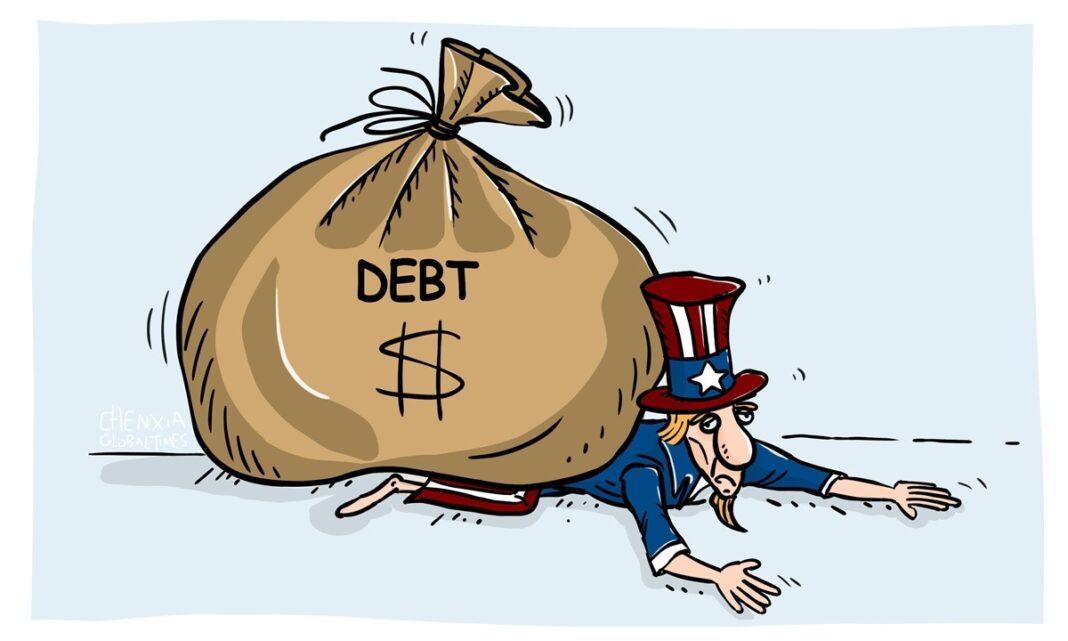US President Joe Biden and Republican House Speaker Kevin McCarthy recently engaged in a face-to-face meeting to address the matter of increasing the country’s debt ceiling.
The debt ceiling is a restriction set by the US Congress that dictates the maximum amount of money the government can borrow. Despite the absence of a definitive agreement, McCarthy expressed confidence, asserting, “I am confident that we can reach a resolution.”
He also acknowledged that while an agreement has not been reached yet, the discussion proved fruitful in addressing areas where divergent opinions exist.
McCarthy emphasized the commitment of both President Biden and himself to continue daily discussions until a resolution is achieved.
President Biden, in a released statement, described the meeting with Speaker McCarthy as productive, focusing on the imperative of averting default and preventing an economic catastrophe.

He emphasized that default was not an option and stressed the necessity of forging ahead in a bipartisan manner, acting in good faith to achieve a mutually agreeable resolution.
Concerns regarding the impending debt crisis have escalated, with Goldman Sachs projecting that the United States will exhaust its cash reserves within a span of three weeks unless the issue is resolved promptly.
The investment bank estimated that the Treasury Department’s cash balance would plummet below $30 billion (£24.1 billion) around June 8 or June 9, constituting the bare minimum required for the world’s largest economy to meet its financial obligations.
However, the economists at Goldman Sachs, Alec Phillips and Tim Krupa, cautioned that this estimate carries significant uncertainty, noting the possibility of revenue slowing down more than anticipated and leaving the Treasury in a cash shortfall as early as June 1 or 2.
The ramifications of a US debt default would undoubtedly be severe, potentially precipitating a recession within the American economy, with far-reaching consequences for global economies.
US Government’s Borrowing Limit Sparks Concern
The interconnectedness of the global financial system implies that any disruption in the stability of the US economy, as a result of default, would have detrimental effects worldwide.
As the debt ceiling debate continues, stakeholders within the US government, including President Biden and Speaker McCarthy, recognize the urgency of finding a resolution to this critical issue.
The debt ceiling serves as a vital mechanism to control and manage the nation’s borrowing, ensuring fiscal responsibility while enabling the government to meet its financial commitments. However, differing perspectives and policy priorities have impeded the immediate formation of an agreement.
Both parties involved in the discussion acknowledge the significance of reaching a bipartisan compromise to prevent default and safeguard the US economy.
While McCarthy’s positive outlook suggests a potential resolution, the absence of a conclusive agreement thus far underscores the complexities of the issue at hand.

The United States finds itself at a pivotal juncture, where the decisions made in the coming weeks will have profound implications for the nation’s economic stability and global financial markets.
As negotiations continue, it remains crucial for political leaders to prioritize effective dialogue, compromise, and a shared commitment to finding a mutually acceptable solution that averts default and ensures the continued financial well-being of the United States and the international community.
The ongoing discussions and potential outcomes regarding the US debt ceiling have significant implications for various stakeholders, both domestically and globally.
Firstly, there would be economic uncertainty as the lack of a resolution creates doubts and hesitations in the US economy. This uncertainty can lead to market volatility, affecting investor confidence, business decisions, and consumer spending.
Consequently, economic growth may slow down, potentially resulting in job losses and reduced business investments. Secondly, financial markets would face disruption if the debt ceiling issue is not resolved.
A failure to raise the debt ceiling could cause a loss of trust and confidence in US Treasury securities, which are considered safe assets. Investors may demand higher interest rates to compensate for the increased risk, leading to increased borrowing costs for the government, businesses, and consumers.











